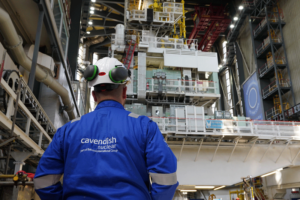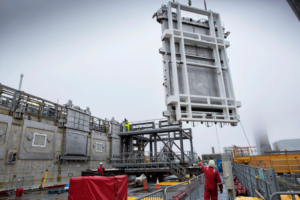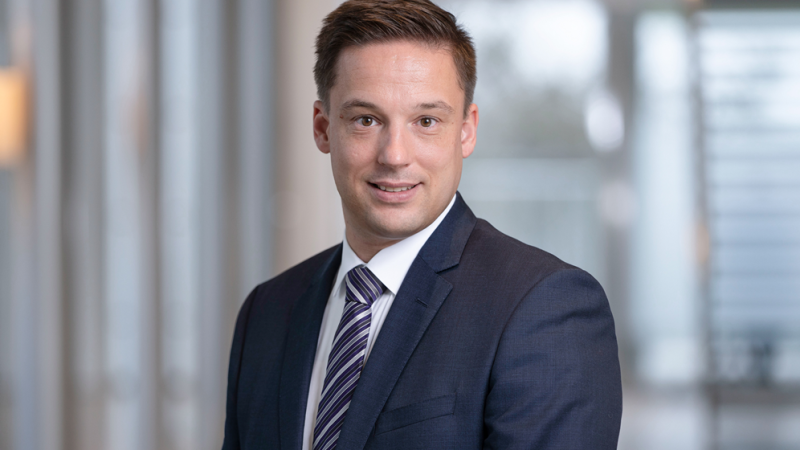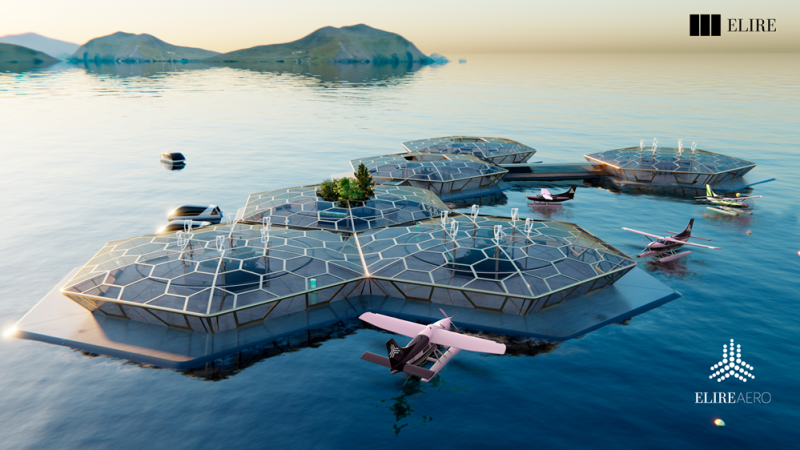Cavendish Nuclear is a core part of Babcock International Group’s Nuclear Sector, providing a comprehensive range of critical nuclear solutions across the markets of clean energy, defence and civil decommissioning, both in the UK and internationally.
“We are a wholly owned subsidiary of Babcock International, home to the largest nuclear capability in the UK between ourselves and our parent company,” says Managing Director Mick Gornall, explaining that the company’s heritage is based on the amalgamation of some of the most respected companies in the UK nuclear market, acquired by Babcock in the mid to late 2000s. This provided Cavendish with significant experience as a nuclear site licence holder, as well as supporting infrastructure and plant across UK nuclear build, operation and decommissioning.
“Through these acquisitions & subsequent growth, Cavendish developed capabilities critical to the support of the UK’s advanced gas-cooled reactor fleet. Since then, we have expanded the capability to cover broader aspects of the civil nuclear industry, and the defence industry.”
 Strong player
Strong player
Over the last two decades, Cavendish has achieved major accomplishments, including signing an EDF Strategic Lifetime Partnership to support the continued operation of EDF Energy’s existing reactor fleet. Cavendish Nuclear is part of the MEH Alliance, which has a £986 million contract with EDF Energy to deliver all of the main mechanical, electrical, heating (MEH) and ventilation works for Hinkley Point C. Cavendish Nuclear is also a member of the Sizewell C Consortium and has been active in support of small and advanced modular reactor (SMR/ AMR) development.
“We play a role in designing and building nuclear power stations and nuclear facilities, and support the operating fleets. Being one of the major supply-chain partners that provides engineering services to current EDF reactors, we play an important part in reactor lifetime extensions as well as decommissioning.”
Mick Gornall points out that Cavendish’s key differentiator is the sheer breadth of its services. “Unlike our competitors who tend to focus on a particular area, whether it’s design engineering or manufacturing or technology differentiation, we offer a much wider scope of expertise, leveraging our broader capabilities within Babcock.”
Whilst over 90% of Cavendish’s business is delivered in the UK, Gornall also highlights success in diversifying into international markets. “We now have a US office in Arlington, Virginia, and an office in Tokyo. In the US and Japan, we are primarily looking at supporting the legacy programme of managing the decommissioning of redundant facilities using our many years of experience across the Sellafield, Magnox and Dounreay sites in the UK. That business is growing.”
What is also growing is the company’s business in the defence sector, he says. At the Atomic Weapons Establishment (AWE), Cavendish Nuclear are leading the design, installation and commissioning of complex plant and equipment to enable the customer to safely process and deliver their production line. While at Devonport the teams are delivering safety case, design and engineering to maintain and enhance the submarine dockyard infrastructure. The company has also secured a place on a Defence Infrastructure Organisation (DIO) framework to provide specialist nuclear technical services to the Ministry of Defence (MOD). Its primary focus is on delivering the refurbishment and upgrade of critical infrastructure at HMNB Clyde.
Emerging opportunities
With the expected revival of the nuclear industry, prospects seem promising for Cavendish. “New nuclear is, indeed, a very important growth dimension. With the increasing focus on energy security, the ageing nuclear fleets are set to be replaced with more modern facilities. In the UK, the gas-cooled reactors are going to be replaced by new gigawatt reactors at Hinkley Point and Sizewell.”
“There is also much discussion about small modular reactors and advanced modular reactors – the newer generation reactors, which due to their higher operating temperatures, can not only generate electricity, but can also produce hydrogen, further helping to decarbonise various sectors,” he says.
Mick Gornall affirms that the company will be busy. “We’re a major contractor at Hinkley Point. We’re supporting Sizewell C with its final investment decision. In addition, we are supporting a number of technologies with respect to SMRs and AMRs – we are working with GE Hitachi, Rolls Royce and X energy, helping them to engage with government to move their technologies forwards.”
The company has already scored a significant success in this area, as the UK Government has recently selected X-energy and Cavendish Nuclear for the first advanced modular reactor award from Future Nuclear Enabling Fund. The companies are using the funds to develop UK-specific deployment plans including an assessment of domestic manufacturing and supply chain opportunities, constructability, modularisation studies, and fuel management.
 Continued growth trajectory
Continued growth trajectory
All that growth also presents serious challenges. “Many Nuclear experts are now in their 50s and beyond, and the skills shortage in the industry is acute. We’ve massively upped our intake of graduates and apprentices, and we’re recruiting people from adjacent sectors: oil, gas, pharmaceutical, aerospace and manufacturing. We’ve developed programmes to bring those people up to speed so they can work and operate successfully in the nuclear environment. This approach has been really effective.”
The skills challenge also translates to the supply chain. “Supply-chain capability needs to scale up with the new opportunities, and we are committed to supporting our suppliers in ensuring that they develop and grow as we do. Given our heritage, we have some very strong relationships with our suppliers built up over many years” says Gornall.
Looking towards the future Gornall highlights that the company has been growing organically over the last four years and expects to sustain that growth trajectory. “There are many developments in these areas and we will actively participate in these. To this end, we are set to invest in new technologies but, most importantly, in our people.”
“We’re probably one of the few wholly-owned British companies operating in this space, when many of our competitors have been acquired by foreign organisations, and we’re very much one of the leading companies. That is something to be proud of,” he affirms in conclud








